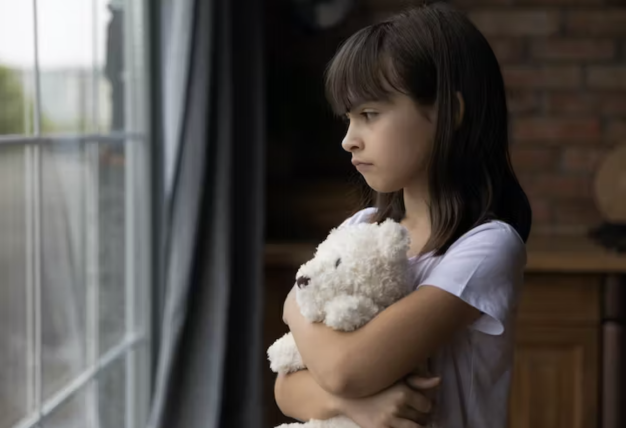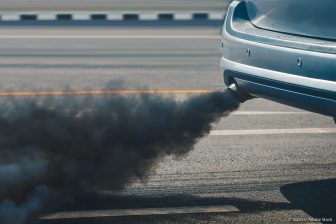
Child poverty will be ‘critical’ election issue in UK General Election
With voters in the United Kingdom getting ready to go to the polls in just over two weeks’ time, child poverty campaigners are highlighting the importance of this most critical issue in the battle for votes.
The End Child Poverty Coalition says that in a staggering two thirds (66 per cent) of the UK’s new voting constituencies at least quarter of children and their families are living in poverty, which ultimately has huge implications for wider society.
Across the UK, over 30 per cent of children are in poverty, which equates to nine children in every classroom, highlighting a severe, widespread issue. In a report carried out by Loughborough University for the coalition, the data suggests a strong link between constituencies with a high child poverty rate and the prevalence of the ‘two-child limit’ welfare rule.
This two-child benefit cap refers to the restriction on Child Tax Credit and Universal Credit to a family’s first two children, which was brought in by the current Conservative government in 2017. Child poverty campaigners have long been demanding that it be abolished, as it make life significantly easier for multi-child families who are struggling.
‘Not immune’ to scrapping it
The End Child Poverty Coalition says that when you factor in increased public service spending and lost economic output due to the lower earning potential of adults, particularly those who have grown up in difficult circumstances, child poverty costs the UK some £39 billion annually.
And so in the run-up to this critical General Election, the coalition of over 100 organisations including the Child Poverty Action Group and Save the Children UK, says that political parties ‘must prioritise child poverty in their campaigns with bold and decisive action’.
Yet although it wants to see all political parties commit to removing the two-child limit to benefit payments and the benefit cap, there is so far no sign that the main parties battling for power – namely the current Conservative government and the main opposition, the Labour Party, are prepared to make that commitment.
Conservative Prime Minister Rishi Sunak has has already confirmed that, if re-elected, the cap woulld remain. Labour’s election manifesto does not contain any pledge to scrap the limit, although its leader, Sir Keir Starmer, has recently said that he is ‘not immune’ to the argument for scrapping it at some point in the future.
Joseph Howes, CEO of children’s charity Buttle UK and Chair of the End Child Poverty Coalition, said: “Child poverty is an urgent issue that demands decisive action. The data is undeniable – too many children are in a cycle of deprivation that affects their health, education, and future prospects.”
It is time to dismantle these barriers and the elections will provide a critical platform for committing to systemic changes to uplift families and give every child the opportunity to thrive
Mark Russell, CEO of The Children’s Society said: “These figures show the scale of child poverty across the country, which is deeply damaging the lives and futures of a generation of children. The UK is one of the richest countries in the world and it is a scandal that over 4 million children are living in poverty.
“Too many families can’t even afford the essentials, too many parents need food banks to put food on the table, and too many children are having their futures blighted by poverty
“We passionately believe every child deserves the best start in life, and we need decisive action from political leaders to address rising child poverty. The first steps the next government should take is scrapping the two child limit and the benefits cap – these together have had a catastrophic effect, pushing many more families into deep poverty.
‘Child poverty is at a record high’
Sara Ogilvie, director of policy, rights and advocacy at Child Poverty Action Group said: “Children won’t get a say in this election, yet child poverty is at a record high with kids in every corner of the country cut off from opportunities to thrive. Their well-being is the responsibility of every politician and should be a policy priority over the next few weeks and beyond.
“Children need all political leaders to commit to abolishing the two-child limit and to set out a plan for helping families to raise happy, healthy children with bright futures. No trajectory for the UK looks good while more than 4 million children are in poverty.”
Everyone stuck in poverty feels like this horror will never end
Grace, aged 20, a mother to a 2 year old child and a Youth Ambassador for the End Child Poverty Coalition who lives in the West Midlands said: “Poverty has been a huge burden on my life. My family experienced poverty and now I live in a low-income situation. I couldn’t afford flooring when I moved into my property, I couldn’t afford curtains, my privacy was taken away from me. I struggle to pay my bills due to the increase in inflation.
“My daughter is now having to watch me struggle. I cannot afford to put her in childcare full time and give her the best quality of life and education. I hope that all political parties realise that poverty is real and it’s hard. Everyone that is stuck in poverty feels like this horror is never going to end.”
Region-specific data shows significant disparities: in the North East, 88.9 per cent of constituencies have a child poverty rate over 25 per cent, with Middlesbrough and Thornaby East being the most affected. London and the North West also report high rates, spotlighting the uneven distribution of child poverty across the UK.
Click here for more on the study, including regional variations.




